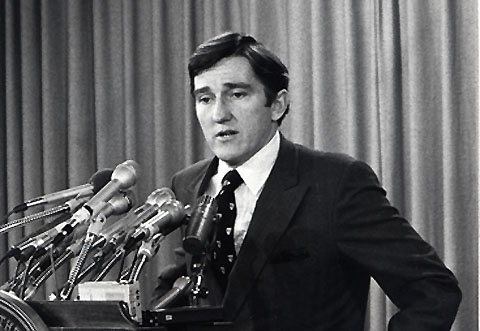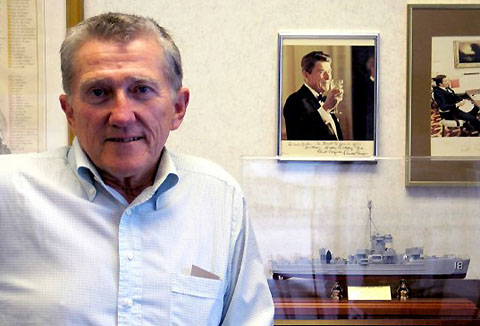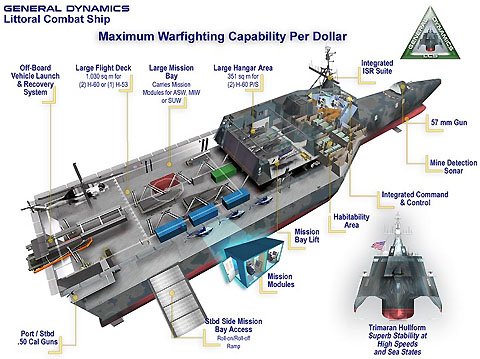www.islandbreath.org ID#0717-28
SUBJECT: JOHN F LEHMAN WRONG AGAIN
SOURCE: DAVID WARD sayjaz3@hotmail.com
POSTED: 11 NOVEMBER 2007 - 11:00am HST
John F Lehman - a history of bad ideas

| Old Sailors Never Die: 9/11 Commissioner John Lehman on the War Path by Tom Barry on 15 July 2004 in Foreign Policy in Focus |
SUBJECT: NAVY AND LEHMAN
SOURCE: DAVID WARD sayjaz3@hotmail.com
POSTED: 3 NOVEMBER 2007 - 7:00am HST
If John Lehman were Secretary of Defense

image above: ex Navy Secretary Lehman in office with model of WW2 warship on which he served
Oil crisis exercise bares US 'impotence'
| Staff Writers on 1 November 2007 for Energy-Daily.com It's August 2009, oil prices have topped 150 dollars a barrel and a secret uranium plant has been detected in Iran. Tehran and Caracas are slashing oil exports by 700,000 barrels to punish the west for sanctions, and the US military is ready to move its entire Pacific fleet into the Middle East to counter threats. It may be tomorrow's headlines, but on Thursday a high-powered panel of Washington insiders acting as the US president's national security council found they would face almost impossible choices and be powerless in such a case, baring the United States' growing inability to lead in global crises. "In this kind of hostile environment (Iran and Iraq) would have the upper hand," said Gene Sperling, who played the treasury secretary in the exercise. It "would make us look impotent," he added. "This scenario could start tomorrow," said retired general John Abizaid, the former US Central Command chief. Put on by the Securing America's Future Energy and the Bipartisan Policy Center, the unscripted one-day simulation sought to emphasize the danger of the narrow gap between world oil production capacity and demand, and the heavy US dependence on oil imports. But it exposed the strained US military's incapacity to project its power over multiple regions, and the ability of even small countries to provoke a world political and economic crisis. To play a White House team reacting to the news in real time, SAFE brought together nine former top presidential advisors and officials with intimate knowledge of national security affairs. The "council" included former treasury secretary Robert Rubin playing the president's national security advisor, former deputy secretary of state Richard Armitage as secretary of state, former navy secretary John Lehman as secretary of defense, and former national security council official Philip Zelikow as national intelligence director. The scenario they woke up to on May 4, 2009 was the loss to world markets of one million barrels a day in oil supplies when saboteurs in Azerbaijan caused the shutdown of the Baku-Tbilisi-Ceyhan pipeline. The action heightened geopolitical tensions in the region and sent oil prices from the mid-90 dollar range to 115 dollars a barrel. With the stock markets plummeting, the council has to advise the president what to say and do, and finds its hands tied by the strains of the Iraq war and by domestic politics. "Energy Secretary" Carol Browner -- head of the US Environmental Protection Agency in the 1990s -- says the president can release oil from the strategic reserve to alleviate gasoline prices, or call for conservation with lower speed limits, a Sunday driving ban, and other measures. Looking at possible Russian or Iran involvement in the Azerbaijan blast, "joint chiefs chairman" Abizaid says the strategic reserve has to be kept for military needs. Others say the public and Congress would not accept forced conservation. With no information on who made the Azerbaijan attack -- Armenians? pro-Russian elements? Iran? -- the defense and intelligence officials say they have to be on alert but do not know what else to do. "Our ability to project power into this area is very limited. We are strung out all over the globe," said Lehman, noting the military hasn't begun to rebuild after years in Afghanistan and Iraq. Rubin points out that with global production capacity almost maxed out, there is little possibility of replacing the lost oil flow. "It shows how weak our hand is," he says, as the group falters on urging the president to do more than assuage US consumers. Three months later, the situation has drastically worsened. A secret uranium enrichment plant was discovered in Iran, confirming its nuclear weapon ambitions, and oil production in Nigeria has been curtailed by rebel attacks. As the council meets, Iran has just replied to threatened new Western sanctions by cutting back its oil production and Venezuela follows suit, sending prices past 150 dollars. The president's advisors say there are no short-term measures to soften the economic or political blow. They also admit sanctions on Iran have little effect, that high oil prices and short supply actually encourage producer cutbacks. Militarily, with Israel threatening to take action on Iran itself, the Pentagon says the US has to project force in the region. But doing so means moving the entire Pacific fleet to the Middle East, ceding power in the Pacific -- and Taiwan -- to China. After failing to demand sacrifices from the American public in the years following the 9/11 attacks, the new crisis has brought things to a head, Lehman said, as he suggests reviving the draft. "We are facing a mortal threat to our way of life here," he said. |
SUBJECT: SUPERFERRY & LINGLE
SOURCE: DICK MAYER dickmayer@earthlink.net
POSTED: 15 OCTOBER 2007 - 7:150am HST
Navy cancels second LCS after talks fail

image above: General Dynamics proposal for LCS based on Austal hull design
No immediate impact on Austal foreseen by Sean Reilly 2 November 2007 in Everything Alabama (http://www.al.com) The Navy is canceling construction of a second littoral combat ship (LCS) that was to be built at Austal USA's shipyard in Mobile, officials announced Thursday in a decision that also sinks the service's original strategy for future buys of the futuristic vessel. |
see also:
Island Breath: HSF, Navy & Govling 10/15/07
Island Breath: Legislature Contact List 10/10/07
Island Breath: HSF Slice & Swath Technology 9/5/07
Island Breath: Maritime Administration & EIS 9/3/07
Island Breath: Support from Oahu's DMZ 8/30/2007
Island Breath: DMZ - Stop the Strykers 7/2/07
Island Breath: Superferry & Military 10/13/06
Island Breath: Superferry History 10/3/06
Island Breath: Stop the Superferry 8/29/06
Island Breath: Superferry Meetings 8/13/06
Pau